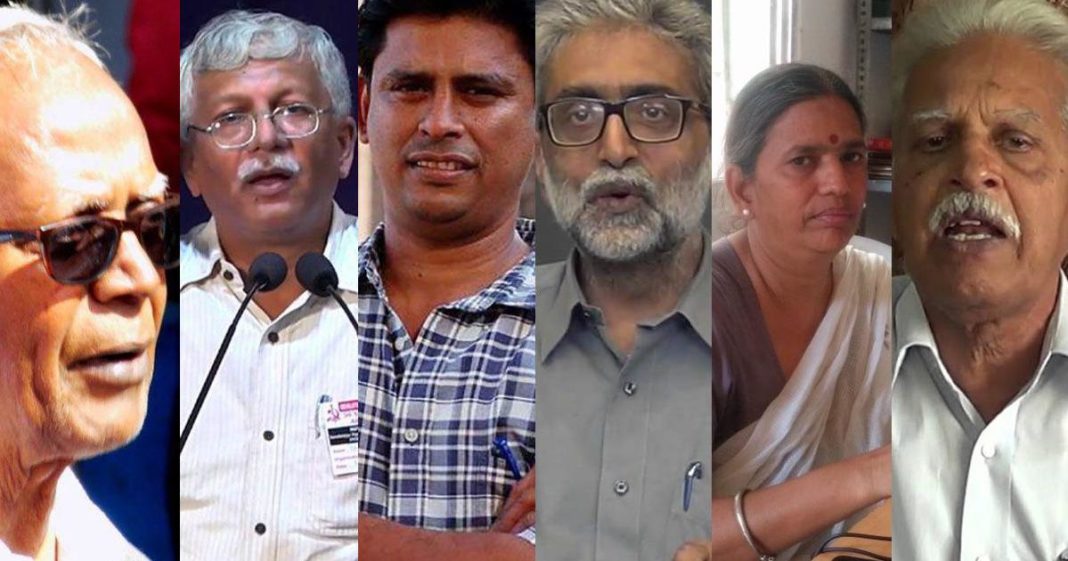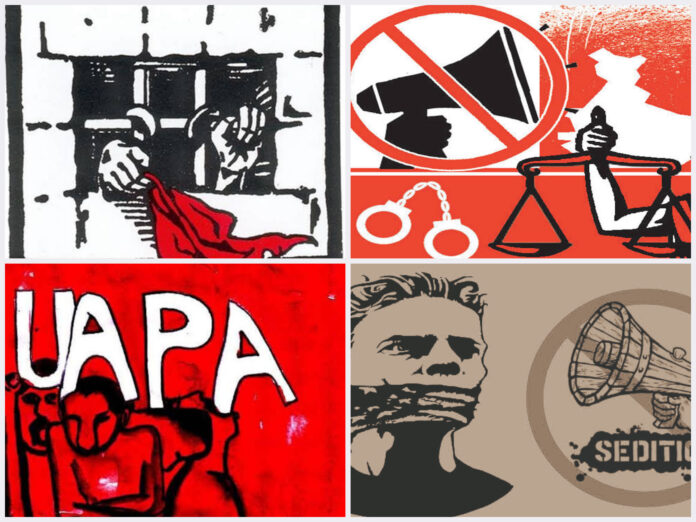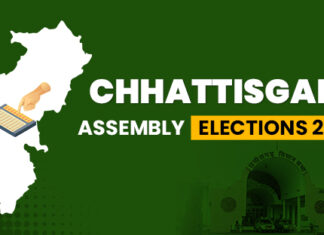One of the prominent features of authoritarian regimes is the high number of political prisoners. Those who are imprisoned because they have opposed or criticized the government in power or those imprisoned for simply asserting their political beliefs itself. India is no stranger to the persecution of political opponents by the ruling establishment. During the Emergency (1975-77), it is estimated that 1,10,000 persons were arrested under the Maintenance of Internal Security Act and the Defence of Internal Security of India Rules. Many of them were arrested simply by virtue of members of banned organisations who were opponents of the Indira Gandhi regime then (Prakash 2018, p.176).
The use of ‘special’ Laws was crucial in enabling the government. These laws are an ‘exception’, to regular due process rules and basic rights of accused persons as per the Criminal Procedure Code, 1973. For instance, MISA allowed Indian law enforcement agencies very broad powers without any checks – indefinite preventive detention of individuals, search and seizure of property without warrants, and very importantly forbade the courts from applying the concept of “natural justice” in cases involving detainees, No one including a foreigner could challenge detention on grounds of natural or common law; and grounds of detention were defined as confidential matters of state and their disclosure, including to the detainee was against the public interest.[1]
Related Reading: UAPA and NIA amendments: Tools to silence dissenting voices
The current dispensation use of special security/ terror legislation like the Unlawful Activities Prevention Act, 1967, National Security Act, 1980, and Public Safety Act, 1978 (limited to J &K) is strikingly similar. These were legislations brought in by Congress governments but are currently being used with extreme brutality by the BJP central and state governments, on its dissidents. The sudden increase in political prisoners came in three waves, first, the Bhima Koregaon arrests, then the preventive detention of all Kashmiri political leaders after the abrogation of the Article 370 (Constitution of India) and finally the arrests of Anti-CAA protesters across the country, the witch-hunting in each of these waves continues.
5. Bhima Koregaon arrests (2018)
To mark the 200th year of the victory of the battle of Bhima Koregaon, several Dalits gathered on the site in January 2018. This was met with a violent attack on protesters which left one person dead. The Maharashtra Police, instead of investigating the violence, used this opportunity to shift focus to Elgaar Parishad, a gathering organized by activists, and human rights defenders in December 2017. Human Rights Activists Surendra Gadling, Mahesh Raut, Sudhir Dhawle, Professor Shoma Sen, Rona Wilson were framed and arrested under UAPA for “inciting violence.” Right after, Activist Sudha Bharadwaj, Varavara Rao, Arun Ferreira, and Vernon Gonsalves were arrested in August 2018. In April 2020, Activist Gautam Navlakha and Dr. Anand Teltumbde were arrested. In July 2020, Prof. Hany Babu was arrested. Through 2019 and 2020, bail pleas of these activists have been rejected several times, even during the pandemic.
Under UAPA, the vagueness of words like “intent to threaten or likely to threaten the unity, integrity security, the sovereignty of India.. or likely to strike terror” as well as “by any other means” in the definition of a terrorist act. This vagueness gives investigative authority the discretion to decide which nonviolent political acts become “terrorist acts” and which political acts continue to be charged under IPC sections on rioting etc. To give this more context, There are various reports that Sambhaji Bhide and Milind Ekbote conspired to instigate violence at Bhima Koregaon, including social media posts attributed to Ekbote’s organization that used violent language. However, UAPA was not invoked in the FIRs against them. [2] On the other hand, Marathi Translation of Bertolt Brecht’s poem, which was quoted in a speech during the Bhima Koregaon celebration was reason enough for the police to invoke charges of terrorist activity under UAPA.[3]

























[…] The Undeclared Emergency: Draconian laws and Political Prisoners […]
[…] Read about: The Undeclared Emergency: Draconian laws and Political Prisoners […]
[…] Also Read: The Undeclared Emergency: Draconian laws and Political Prisoners […]
[…] anyone based on something as simple as owning books that discuss social issues. Under this law, there is no definition of what constitutes as an intent to commit a terrorist act, and anything […]